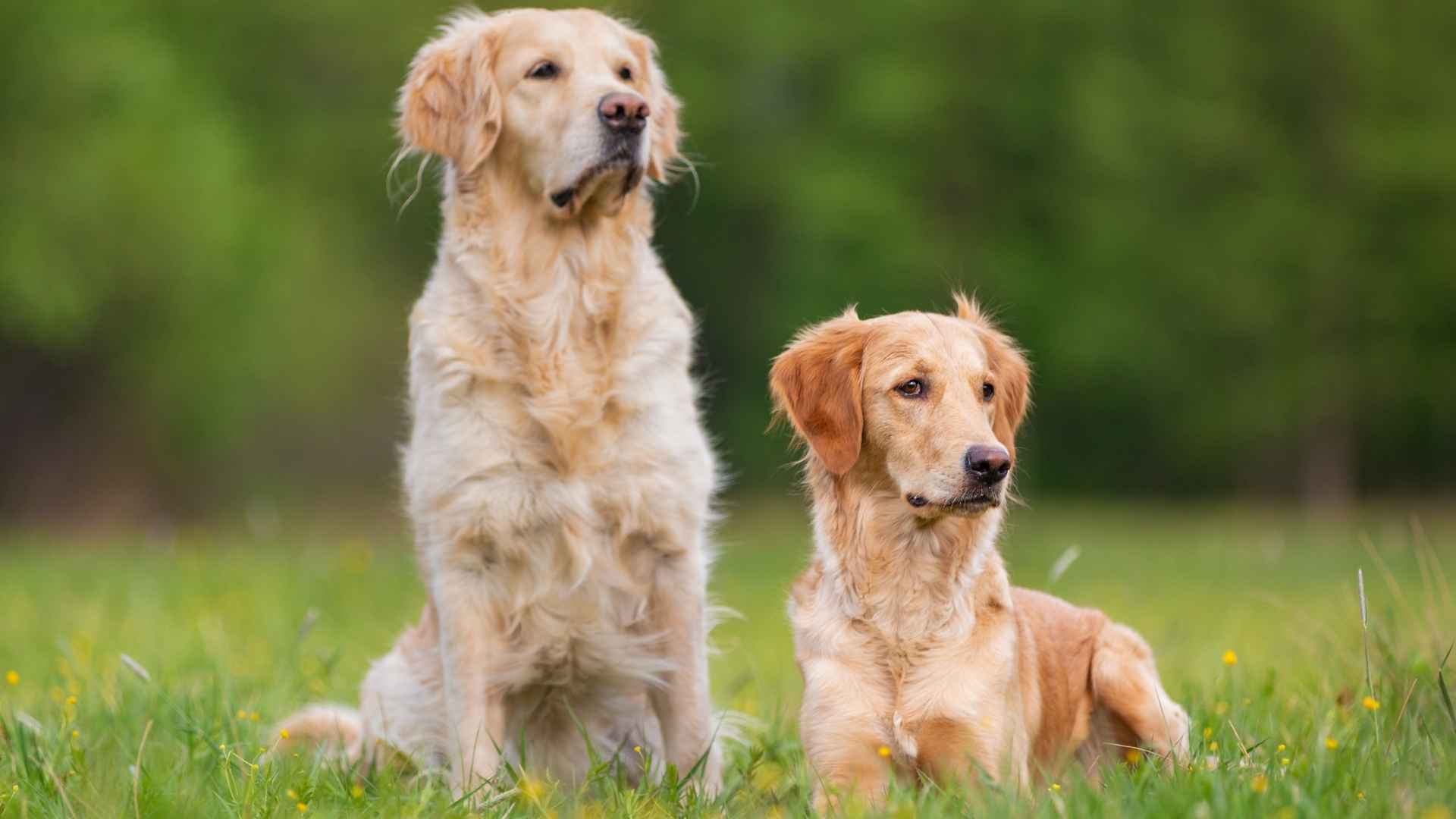Ever met a dog that loves you—but on their terms? Some dogs aren’t the clingy, cuddle-all-day types. They’re independent, confident, and perfectly fine doing their own thing. If you value a pet with a mind of its own, these breeds might be your perfect match.
Now, that doesn’t mean they don’t love their humans. They do! But instead of following you around like a shadow, they’re happy to have their space. They bond with their owners but don’t demand constant attention. Think of them as the cool, self-sufficient roommates of the dog world.
So, if you’re looking for a low-maintenance yet loyal companion, these dogs are worth considering. They’re great for busy owners, those who appreciate personal space, or anyone who loves a little challenge in the training department. Ready to meet some fiercely independent yet loving pups? Let’s dive in!
Independent and Less Affectionate Dog Breeds
1. Shiba Inu
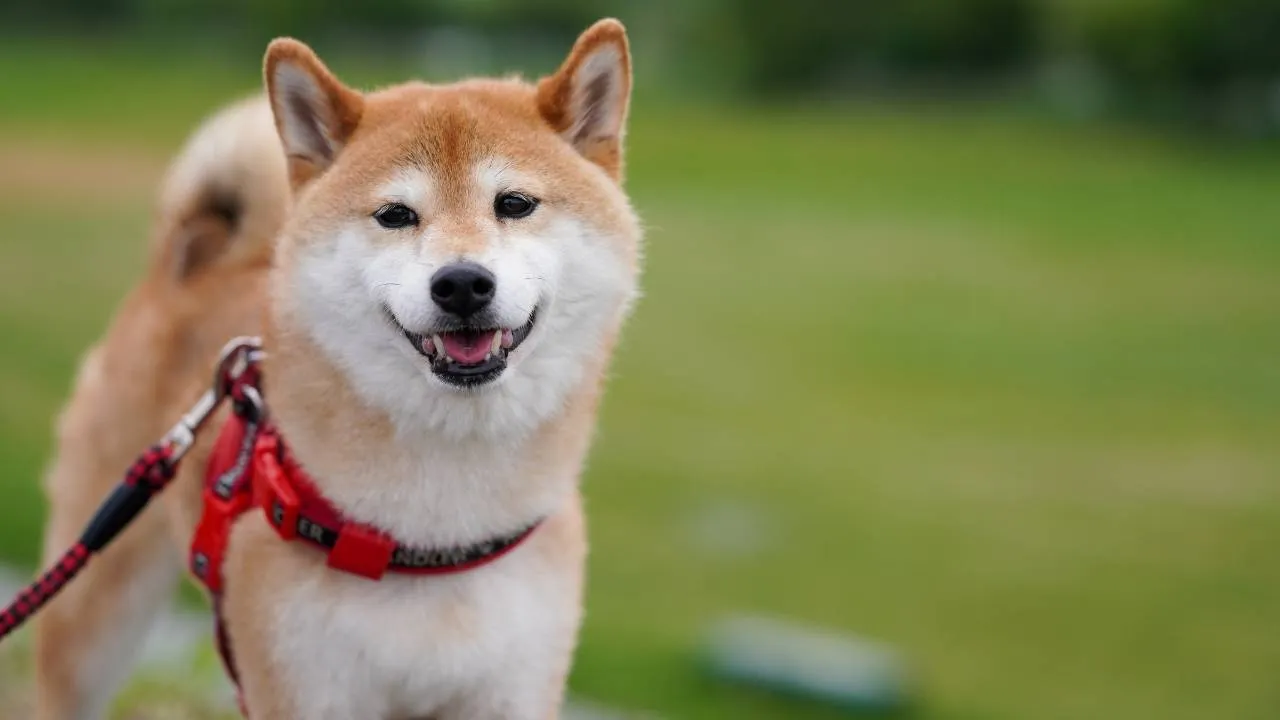
Shiba Inu is a dog that loves you but doesn’t need you 24/7. The ultimate independent canine. This breed is like a cat trapped in a dog’s body, valuing personal space over constant cuddles. Shibas have a mind of their own and won’t hesitate to let you know when they’re not in the mood for attention.
One of the most striking things about Shiba Inu is its self-sufficiency. These dogs are perfectly content entertaining themselves, whether playing solo with a toy or exploring the backyard on their own little adventure.
Training a Shiba? Good luck! According to PetMD, they’re intelligent but have stubborn streaks, too, meaning they’ll listen when they feel like it. Traditional obedience training often doesn’t work unless you make it worth their while. Forget harsh discipline—Shibas respond best to positive reinforcement (and maybe a little bribery with treats).
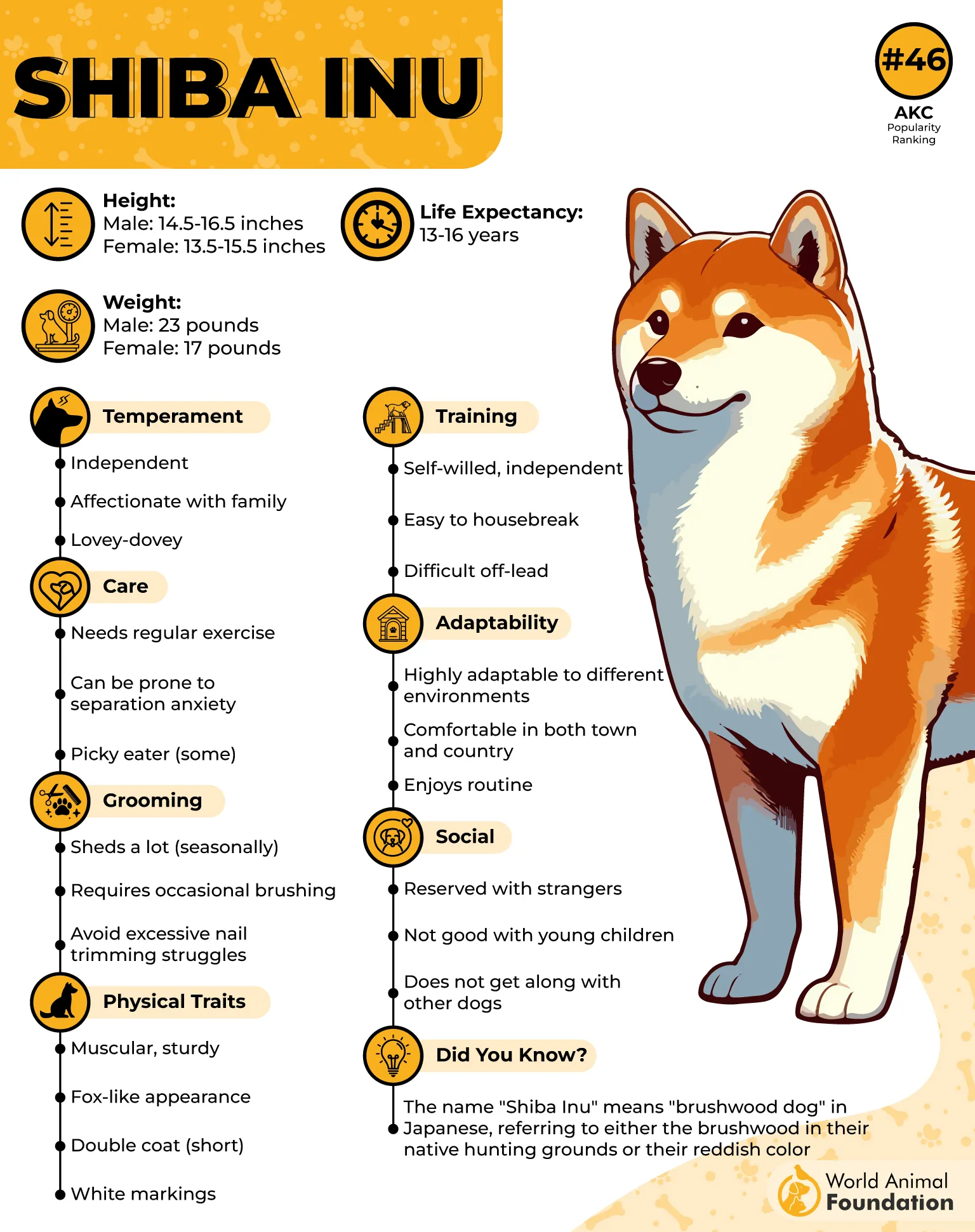
Unlike breeds that crave constant human approval, Shibas don’t need validation. They know they’re awesome. They’ll form a strong bond with their owner on their terms. They’re loyal, independent, affectionate—but not needy. Think of them as the cool, aloof best friend who shows love in their own way.
Shibas are independent, but that doesn’t mean they don’t love their families. They enjoy being around their humans but prefer to keep a little personal space. They’ll sit nearby, observe your every move, and maybe—just maybe—grace you with affection when they decide.
Quick Fact: Shiba Inus were originally bred in Japan for hunting small game. Their independence comes from their past—hunting dogs needed to think and act without constant human direction. No wonder they’re such free spirits!
2. Chow Chow
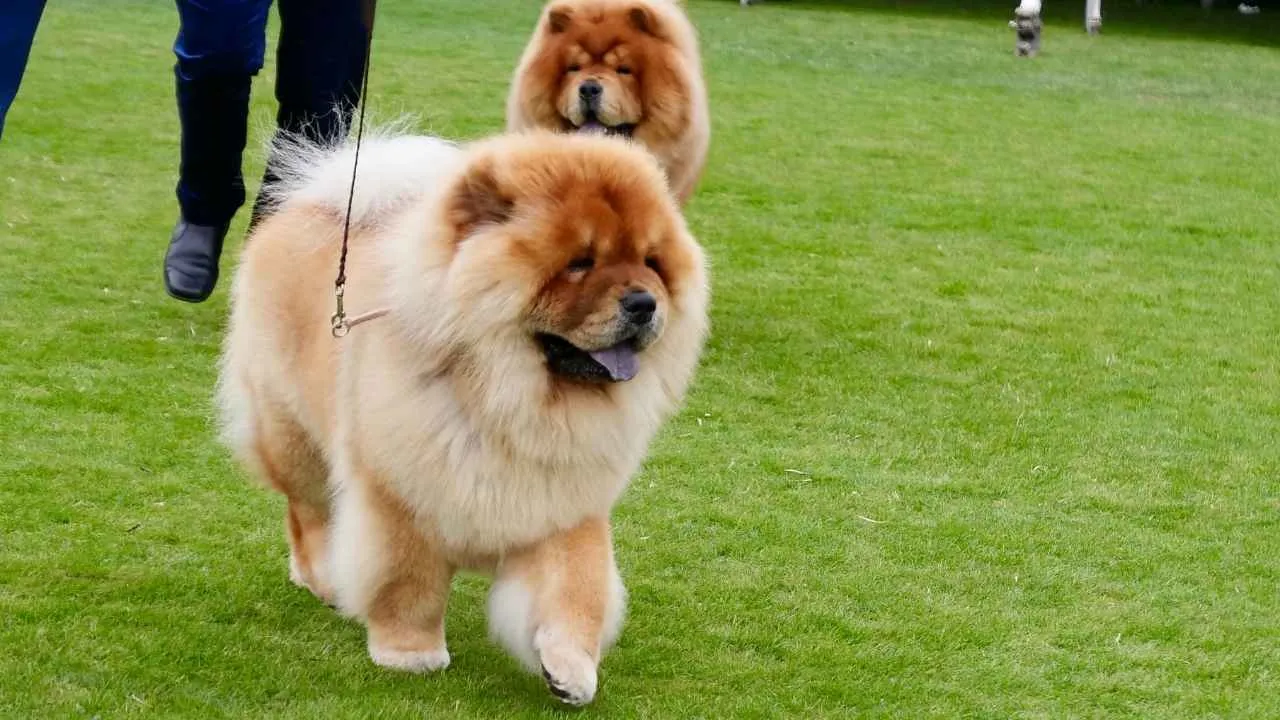
The Chow Chow is basically the canine version of an emperor—dignified, aloof, and completely uninterested in pleasing anyone but himself. This breed is famous for its lion-like mane and an attitude to match. Unlike overly affectionate dogs that demand attention, a Chow Chow prefers to keep things on its terms.
These dogs are deeply independent, so they won’t follow you around like a shadow. Instead, they’ll observe from a distance, assessing whether your presence is worthy of their attention. If they decide you’ve earned it, you might get a brief moment of affection—but don’t expect them to turn into a cuddly lapdog anytime soon.
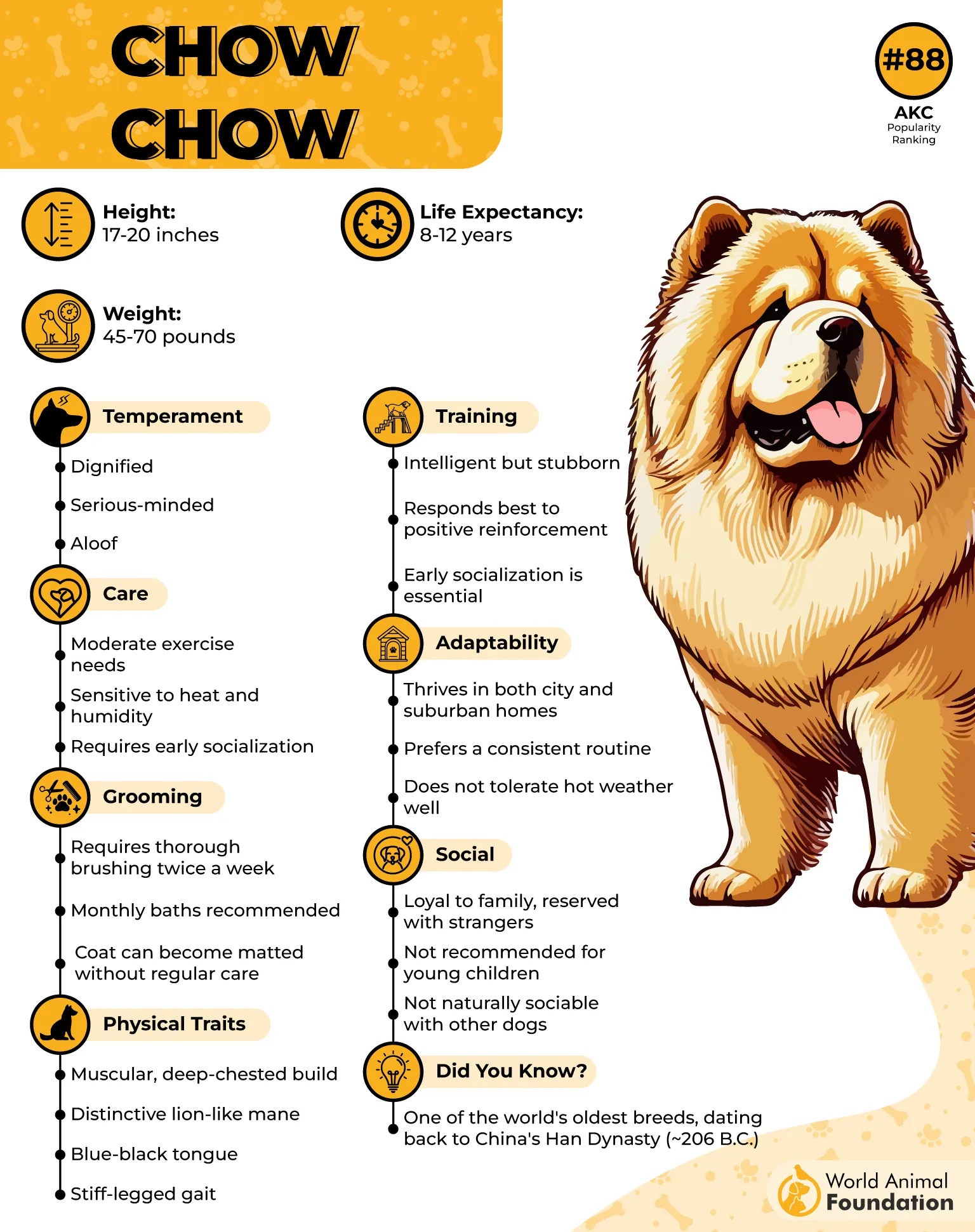
When it comes to training, Chows have a mind of their own. According to PetMD, they’re highly intelligent, but that intelligence comes with a stubborn streak. They don’t care about impressing you, so getting them to obey commands takes patience, respect, and plenty of positive reinforcement.
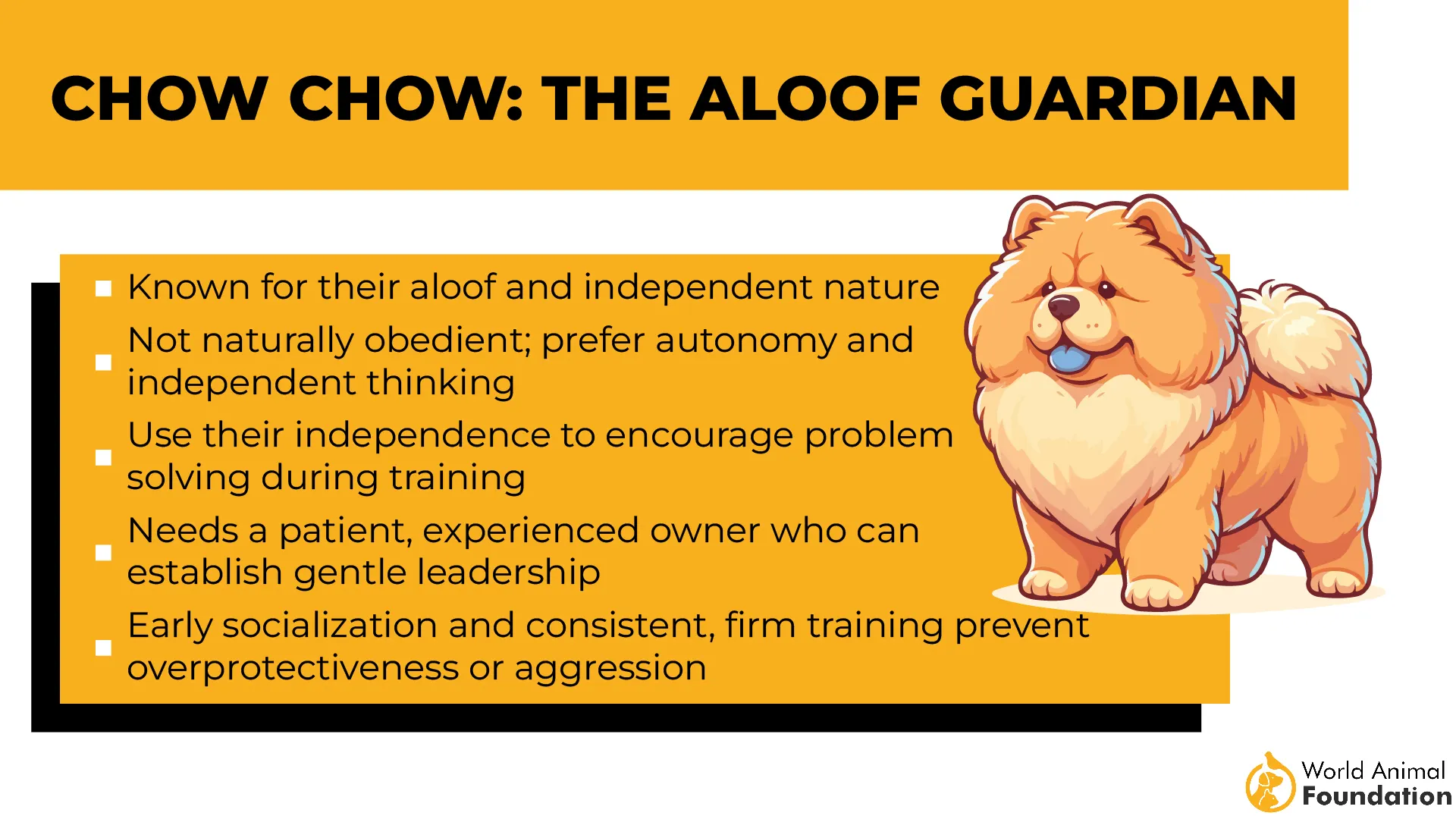
One of the most fascinating things about Chows is their unique personality. They aren’t completely detached; they just show love differently. Instead of constant affection, they offer quiet companionship, often sitting nearby rather than on your lap. It’s like having a regal guardian who’s always watching but never needy.
These dogs also have a serious, no-nonsense attitude. They don’t do goofy antics or over-the-top excitement. Instead, they carry themselves with a calm, composed demeanor that makes them stand out. Want a playful, eager-to-please pup? A Chow Chow will just stare at you like, why would I do that?
3. Afghan Hound
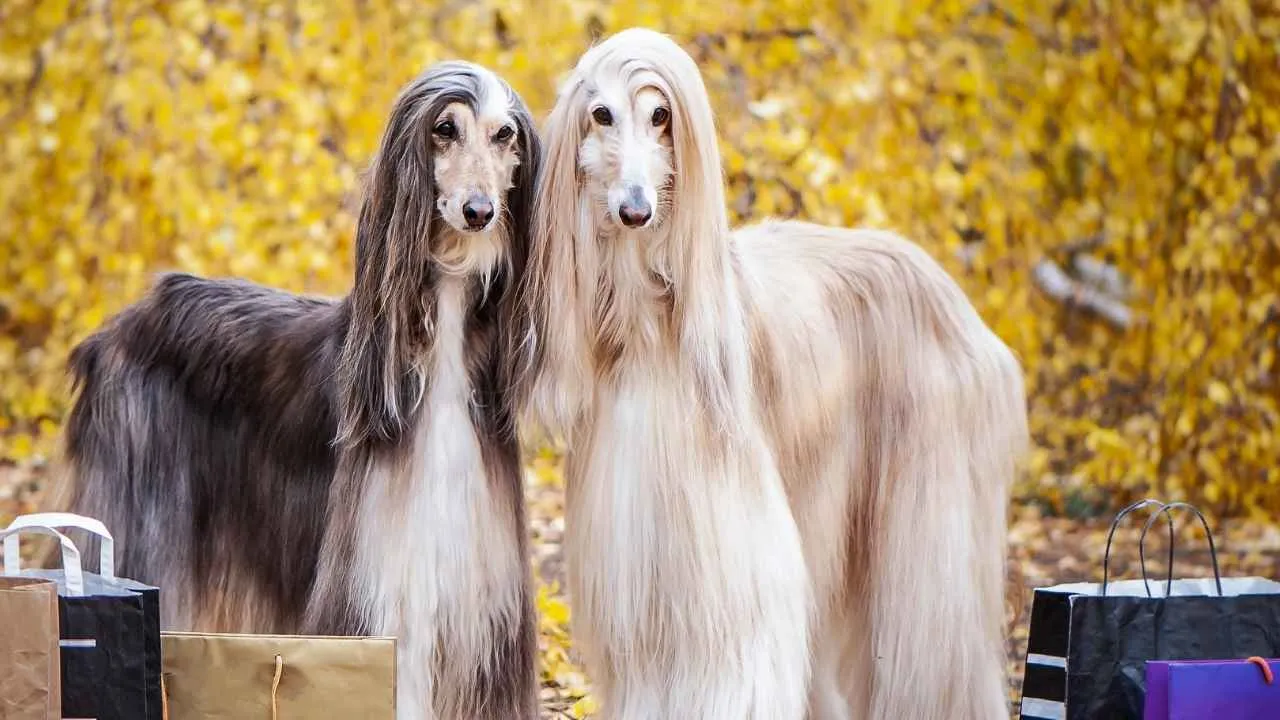
Afghan Hound is stunningly elegant, effortlessly graceful, and completely indifferent to whether you’re impressed or not. With their flowing silky coat and aristocratic posture, these dogs carry an air of mystery, and their independent nature only adds to their charm.
Afghan Hounds were bred to hunt in the harsh landscapes of Afghanistan, where quick thinking and self-reliance were essential. This history explains their independent streak—they’re used to making decisions on their own and don’t wait for human approval.
Unlike dogs that crave attention, Afghans have a more reserved personality. According to Royal Canin, they are affectionate and playful, but don’t expect them to be overly affectionate. They enjoy their space and often act more like a sophisticated guest in your home rather than a clingy family member.
One thing you can’t ignore about this breed is its speed. These dogs were built for chasing prey across rough terrain, and when they ran, they flew. A securely fenced yard is a must because if an Afghan spots something interesting in the distance, they’re gone before you can even react. Think you can catch them? Not a chance.
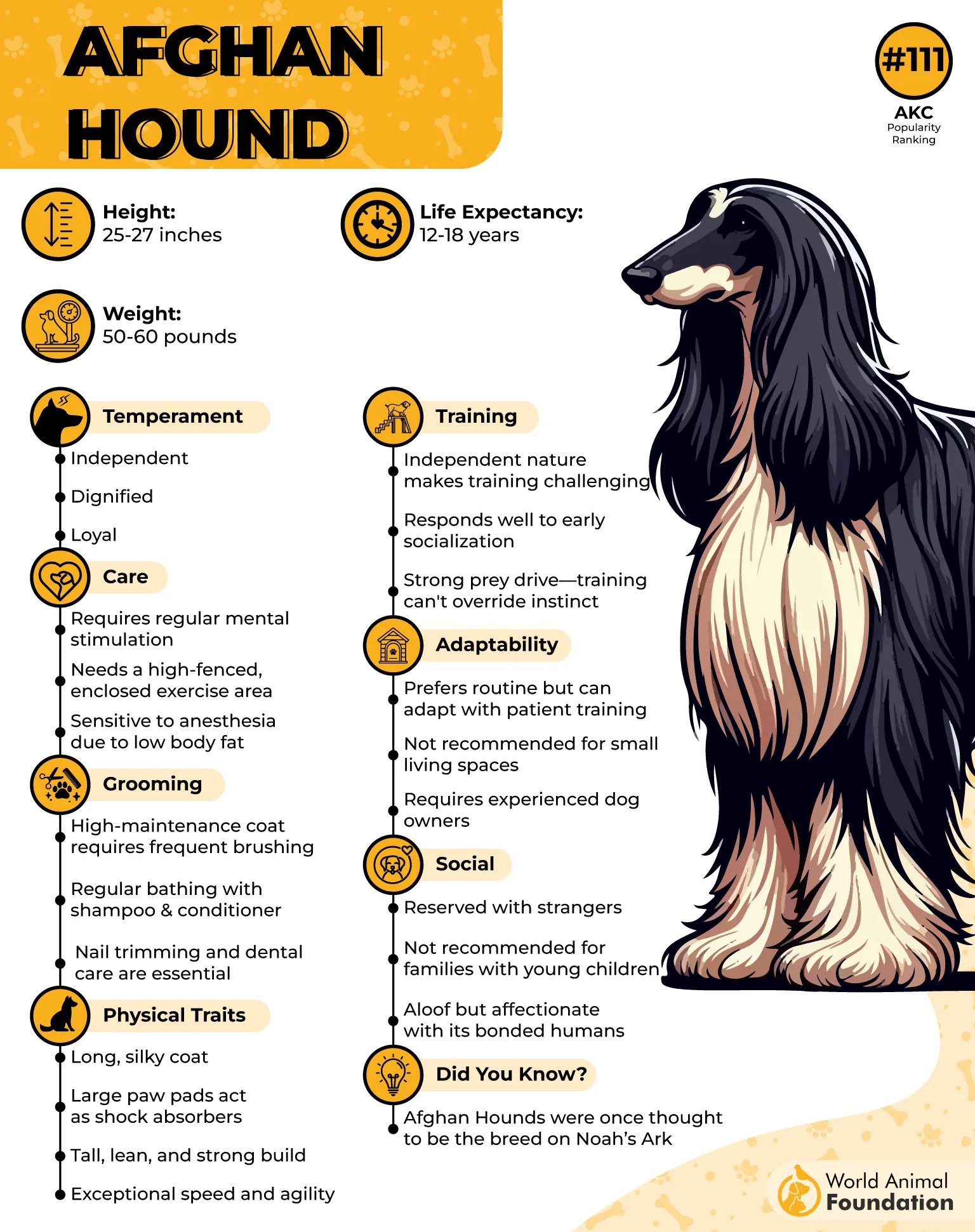
Despite their aloof nature, Afghans have a playful side when they’re in the right mood. It’s rare, but their goofy antics can be downright hilarious when they decide to let loose. But don’t get too comfortable—just as quickly as the playfulness appears, it disappears, leaving you wondering if you imagined it.
4. Basenji
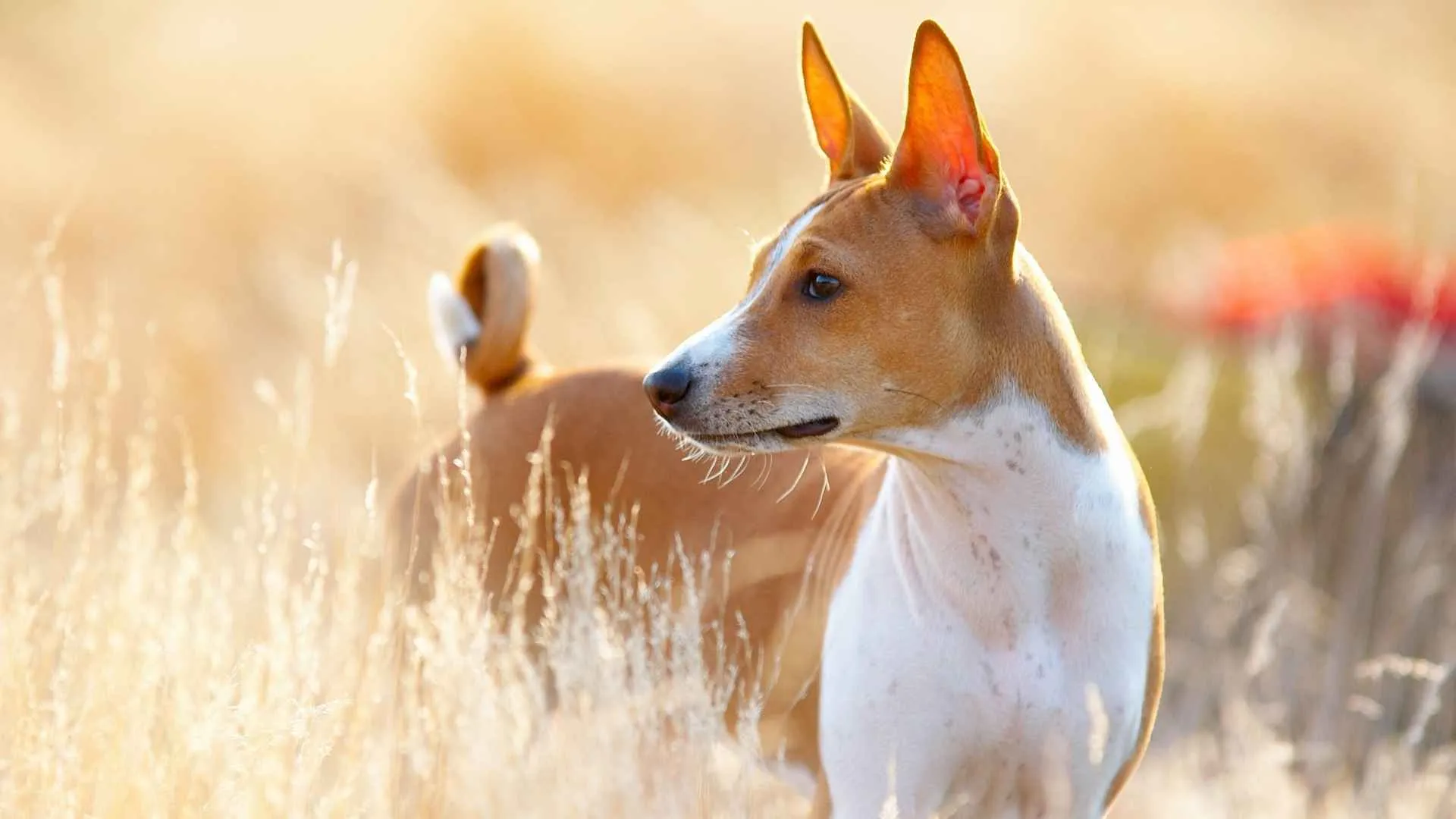
Basenji is independent, clever, and far too dignified to bark like an ordinary dog. This breed hails from Africa, where it was originally used for hunting, relying on its sharp instincts and quick decision-making skills. That self-sufficient nature makes them one of the most independent dog breeds out there.
One of the most unique things about Basenjis? They don’t bark. Instead, they produce a distinctive “yodel” due to the unusual shape of their larynx. This makes them fascinatingly quiet compared to other breeds, but don’t mistake their silence for a lack of personality. They have plenty of it, and they’ll let you know exactly how they feel through expressive body language.
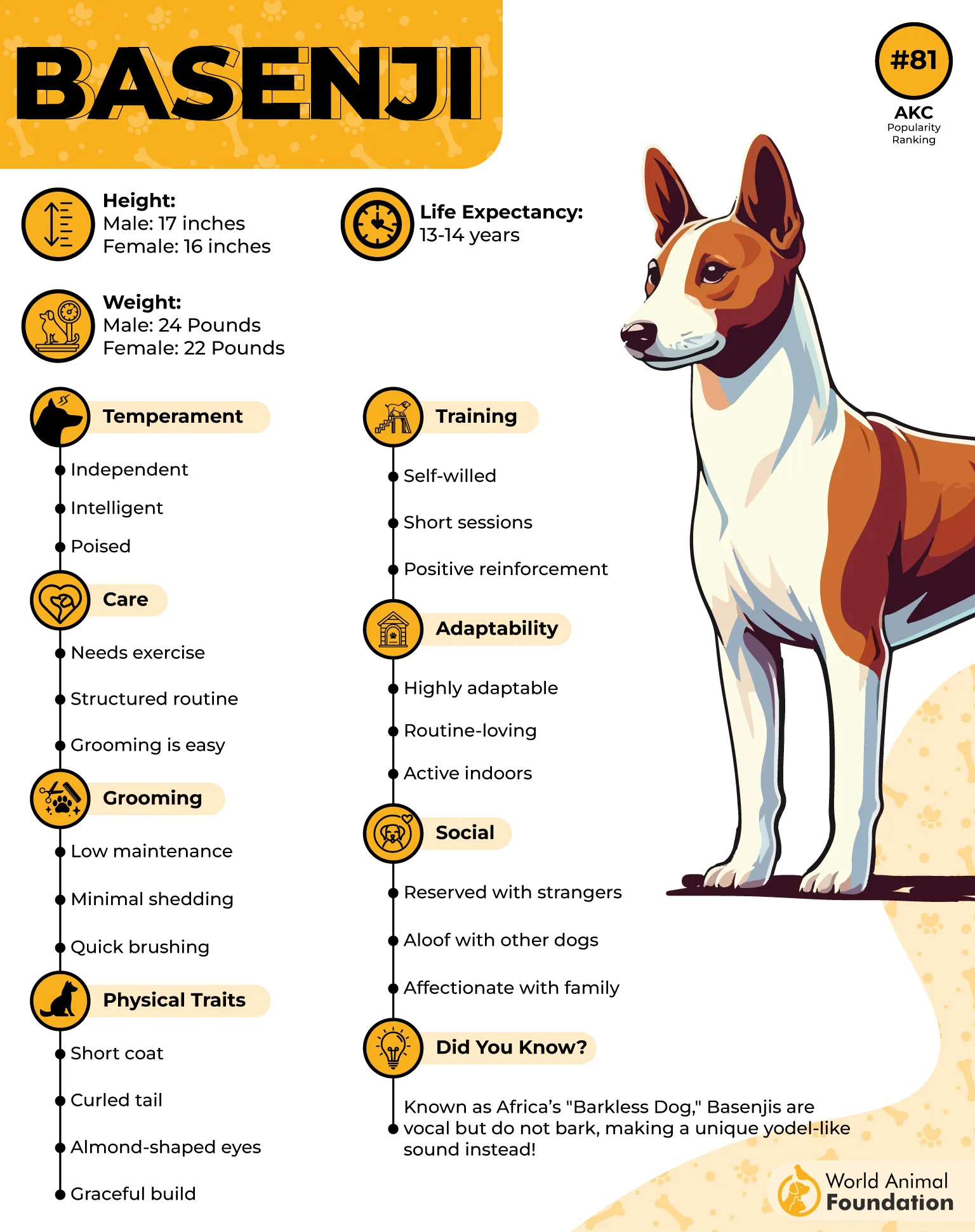
Basenjis are naturally clean and almost obsessive about grooming themselves like cats. They hate getting dirty and will spend time meticulously licking their fur. This means they have little to no doggy odor, making them one of the best low-maintenance breeds in hygiene.
Their independent nature extends to social interactions. While they can form strong bonds with their owners, they’re not the type to be overly affectionate. They prefer companionship on their terms, often choosing a quiet corner to lounge in rather than curling up in your lap. They’re loyal but in a very reserved, no-fuss kind of way.
According to AKC, Basenjis are small, 16-17 inches from the shoulder. They are also notorious escape artists. Their curiosity and problem-solving skills mean they’re always looking for an opportunity to explore beyond the backyard. A standard fence won’t cut it—these dogs are known for climbing, jumping, and even unlocking gates with their paws. Think your yard is secure? A Basenji will prove you wrong.
5. Borzoi
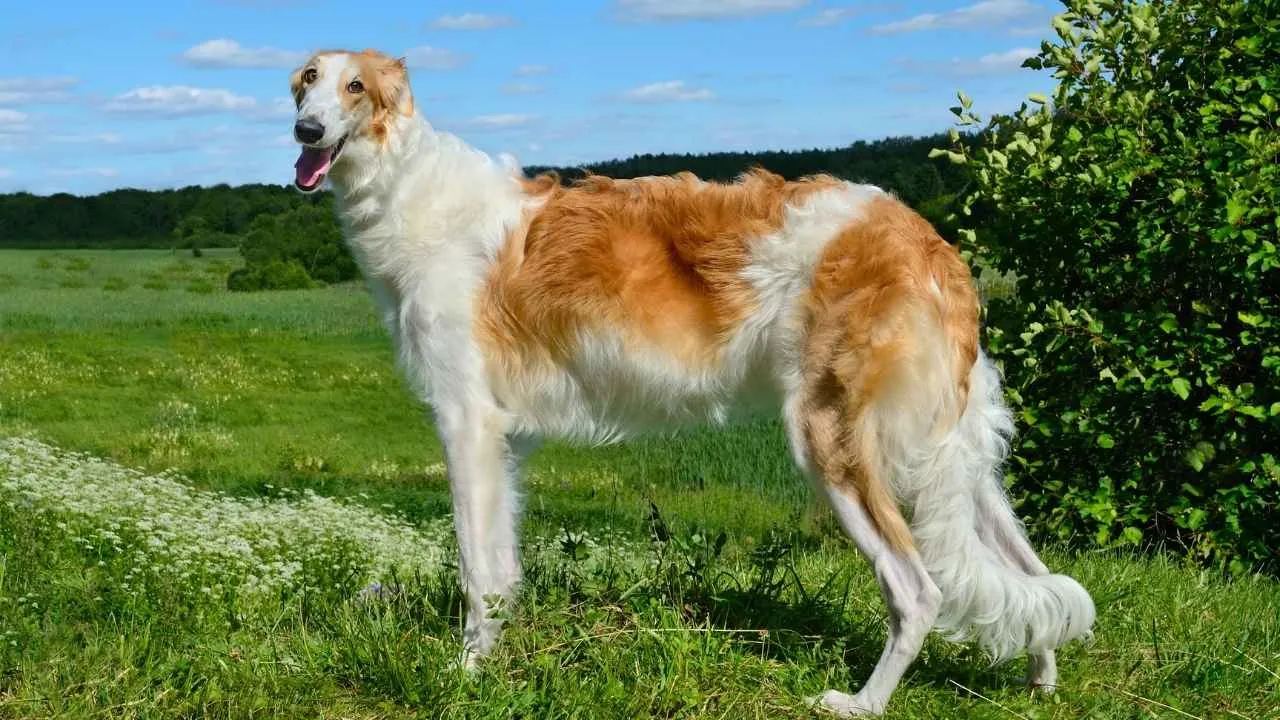
Borzoi is a dog that looks like royalty but behaves like a cat. These dogs are graceful, refined, and completely independent. Bred in Russia to hunt wolves, this breed is a master of self-reliance. They carry themselves with an air of elegance, but don’t expect them to be eager to please.
Unlike overly affectionate breeds that demand attention, Borzois prefer a more distant approach to companionship. They’re deeply loyal to their owners but aren’t the type to smother you with love. Instead of jumping all over you when you get home, they’ll likely lift their head, give you a slow blink, and return to whatever important Borzoi business they were handling.
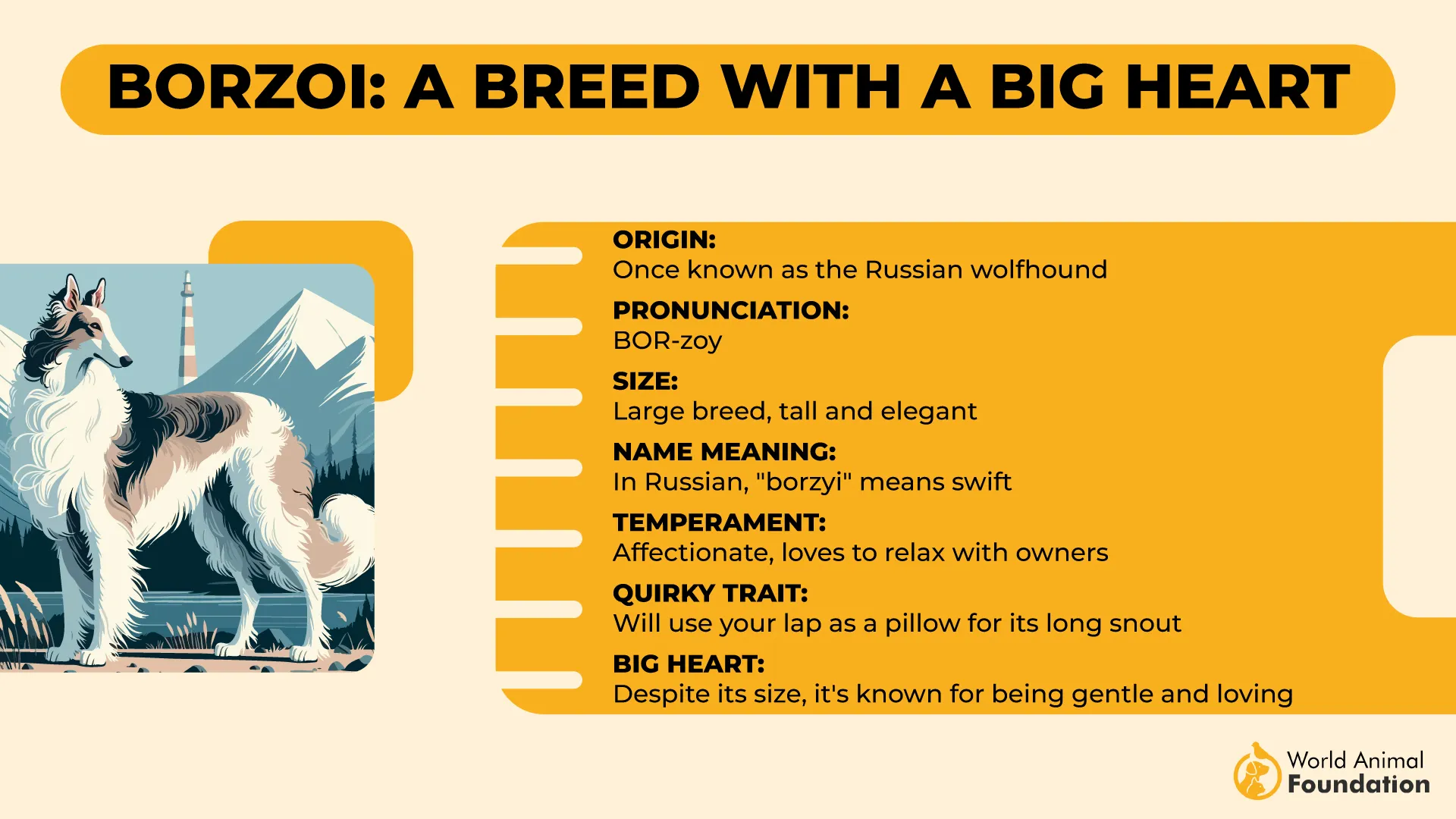
Training a Borzoi requires patience and a lot of creativity. These dogs are intelligent, but their independent nature makes them bored with repetition. If a Borzoi doesn’t see the point in a command, they’ll ignore it. Harsh training methods? Forget about it.
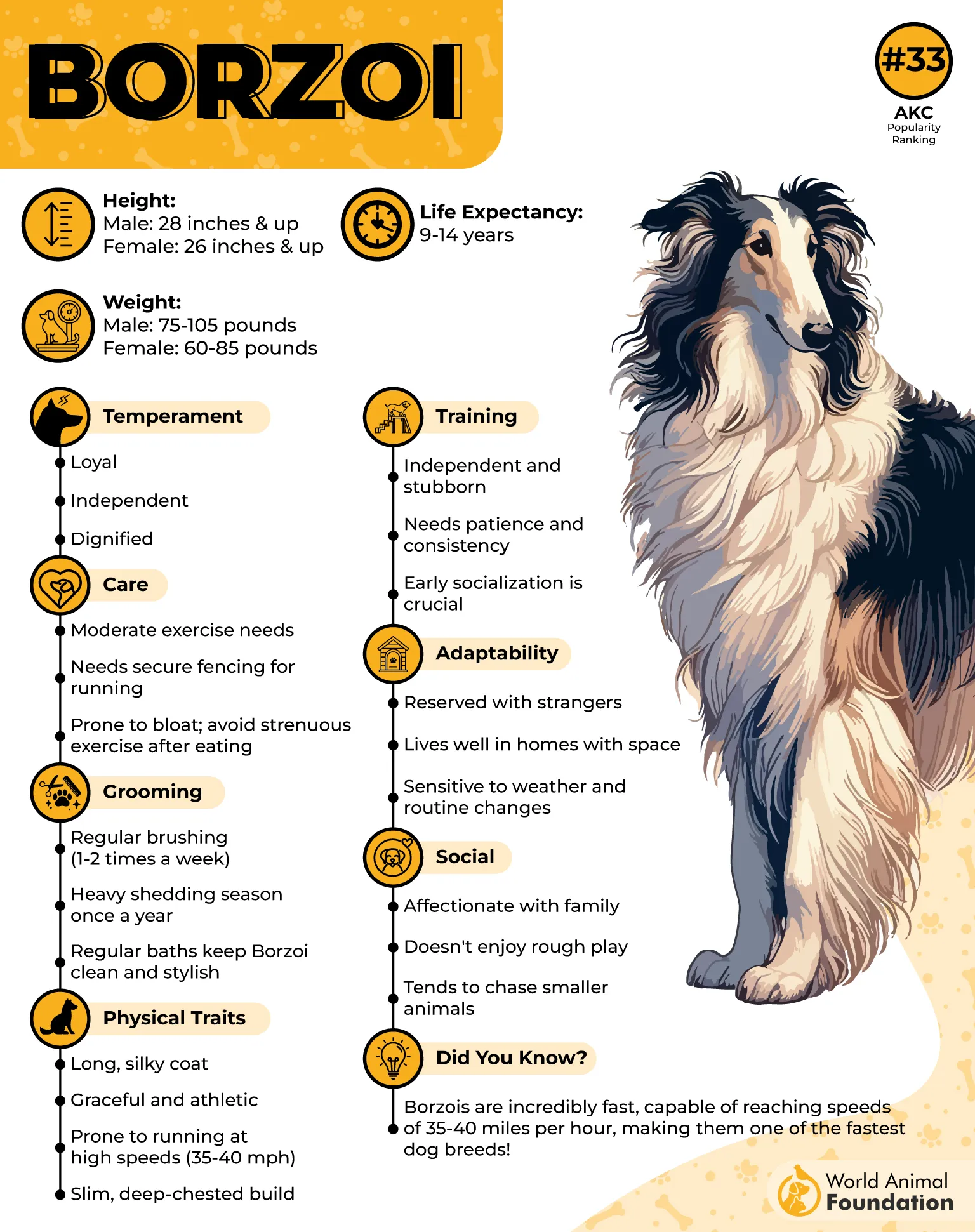
One of the most striking things about Borzois is their incredible speed. Built like a greyhound but taller and more refined, these dogs were bred to chase down prey at lightning speed. If they see something interesting in the distance, they will take off. That means a secure fence and a sturdy leash are non-negotiable.
According to Hill’s Pet, Borzois are incredibly good-natured, gentle, and clean dogs. They don’t drool, rarely have a strong doggy odor, and will spend time grooming themselves like a cat. Their long, silky coat requires regular brushing, but surprisingly, they’re not as high-maintenance as they look. Just don’t expect them to enjoy bath time—these independent souls prefer to keep their dignity intact.
6. Tibetan Mastiff
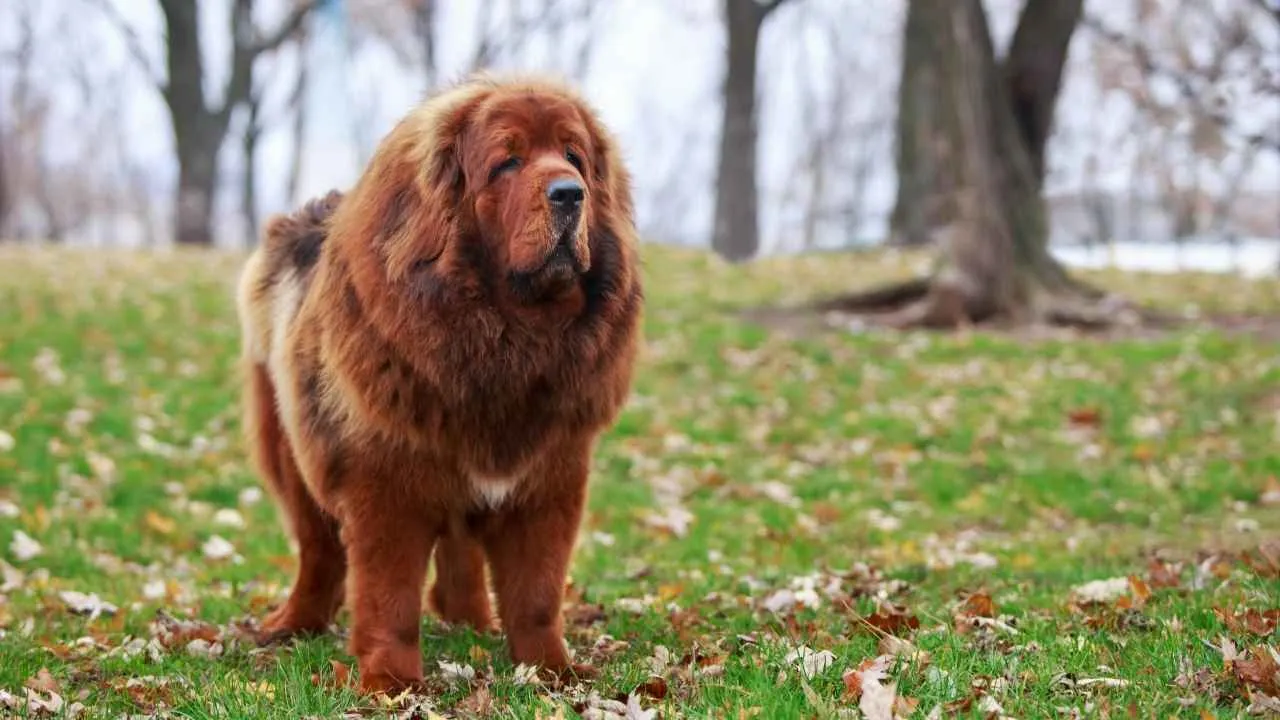
The Tibetan Mastiff is a dog that acts more like a fortress than a pet. A breed that defines independence, strength, and sheer willpower. Bred to guard livestock and monasteries in the harsh Himalayas, this giant dog isn’t just independent; it expects to be in charge.
Unlike clingy, people-pleasing breeds, the Tibetan Mastiff is perfectly content spending time on its own. They form strong bonds with their families but don’t constantly seek attention or affection. Instead of begging for cuddles, they’ll find a high vantage point, survey their surroundings, and keep watch—just as their ancestors did for centuries.
One of the most fascinating things about Tibetan Mastiffs is their nocturnal nature. In the Himalayas, they were bred to be nighttime guardians, meaning they’re naturally more active and alert after dark. Many owners notice their Tibetan Mastiffs patrolling the yard at night while the rest of the household sleeps.
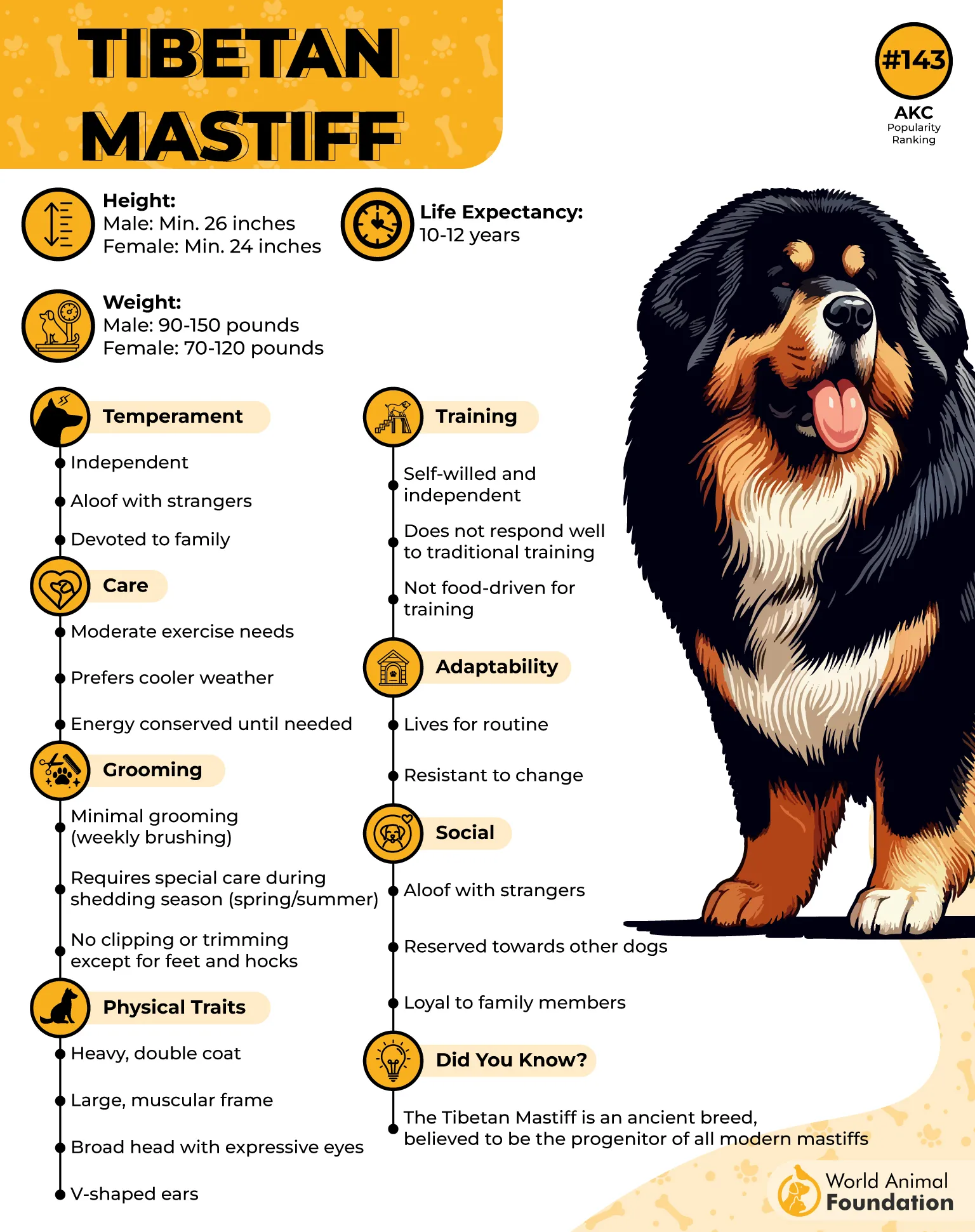
Despite their size and strength, Tibetan Mastiffs are surprisingly cat-like in personality and are quite independent, states PDSA. They prefer to do things on their own terms and don’t respond well to forced affection. They’ll come to you if they’re in the mood for attention.
Their thick, double coat gives them a majestic lion-like appearance, but it also means they thrive in colder climates. If you live somewhere hot, keeping them cool is a must. These dogs don’t just tolerate the cold—they love it. A Tibetan Mastiff in the snow is pure happiness in motion.
7. Alaskan Malamute
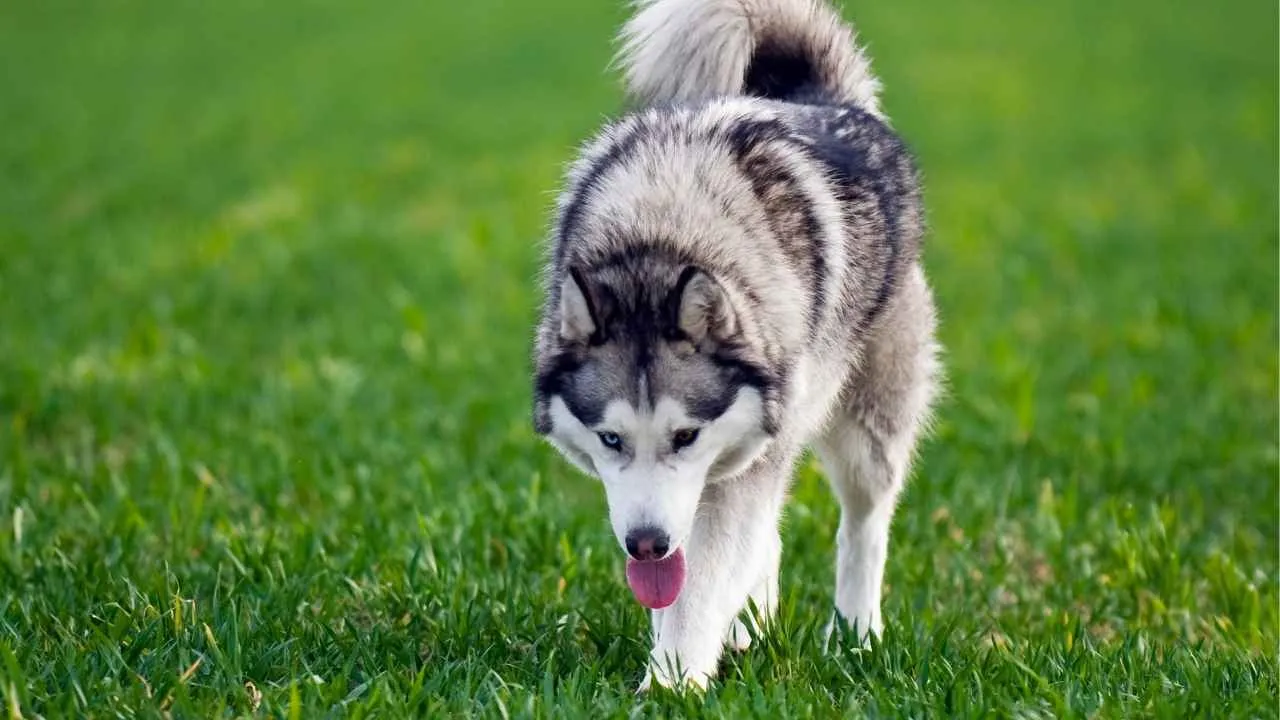
Alaskan Malamute is a dog that looks like a wolf, acts like a free spirit, and thinks it runs the house. Built for endurance, strength, and survival in the Arctic, this breed has a mile-long independent streak. If a Malamute listens to you, it’s because it wants to, not because it feels obligated.
Unlike overly affectionate breeds that crave human attention 24/7, Malamutes are self-sufficient. They are affectionate, lovely, and playful, says Britannica. They love their families, but they’re not the type to constantly seek approval. Instead of waiting for your command, they often make their own decisions—whether you like it or not.
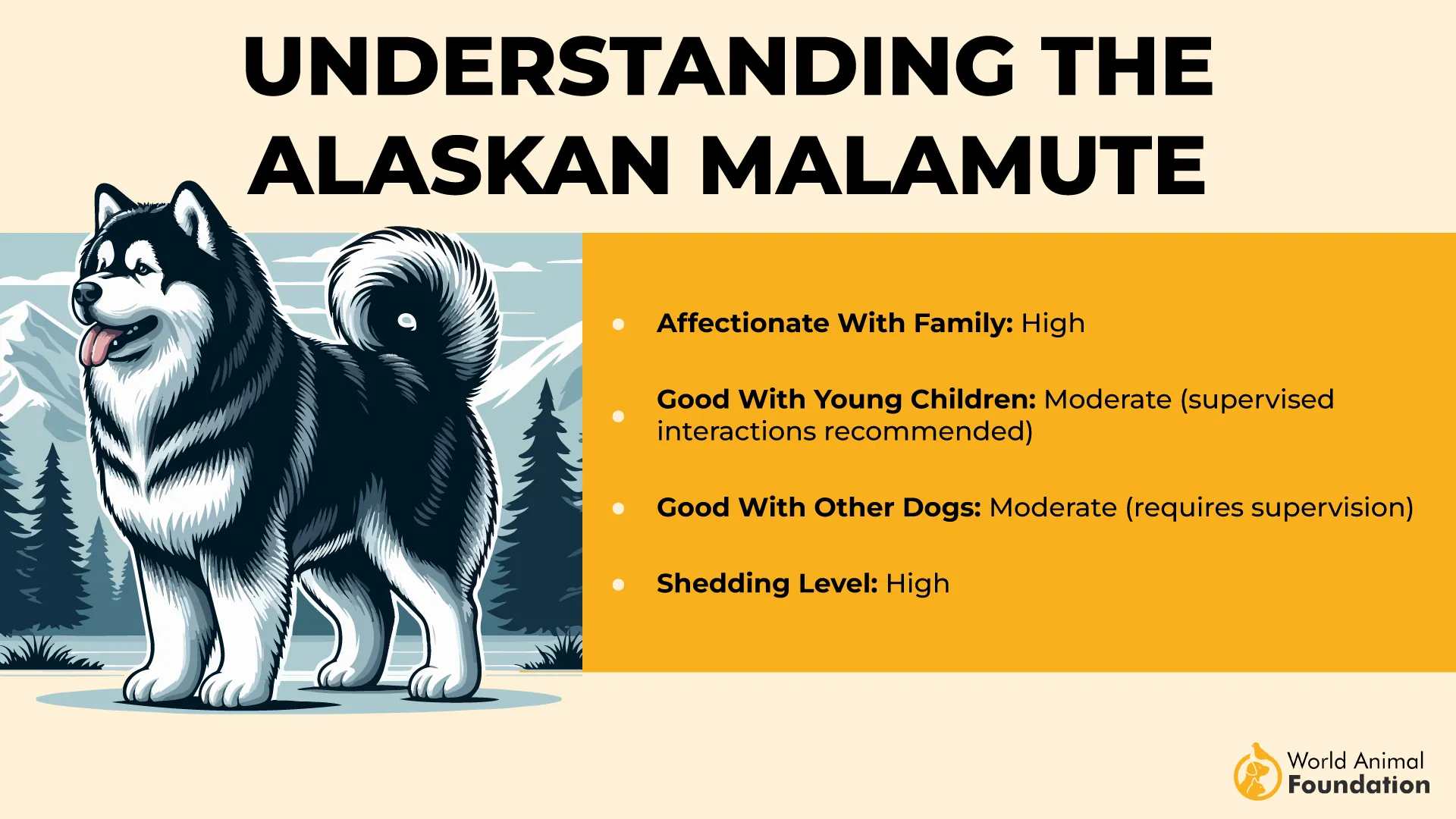
One of the most unique things about Malamutes is their communication style. They’re not big barkers, but they love to “talk.” Expect howls, grumbles, and playful chattering when they have something to say. If you’ve ever wanted a dog that sounds like it’s having a conversation with you, a Malamute is your perfect match.
Unlike some independent breeds that prefer solitude, Malamutes thrive in the company of their “pack.” That can be humans or other dogs, but they dislike being left alone for long periods. However, they’re selective with their affection—while they may enjoy your company, they don’t need constant reassurance or belly rubs to be happy.
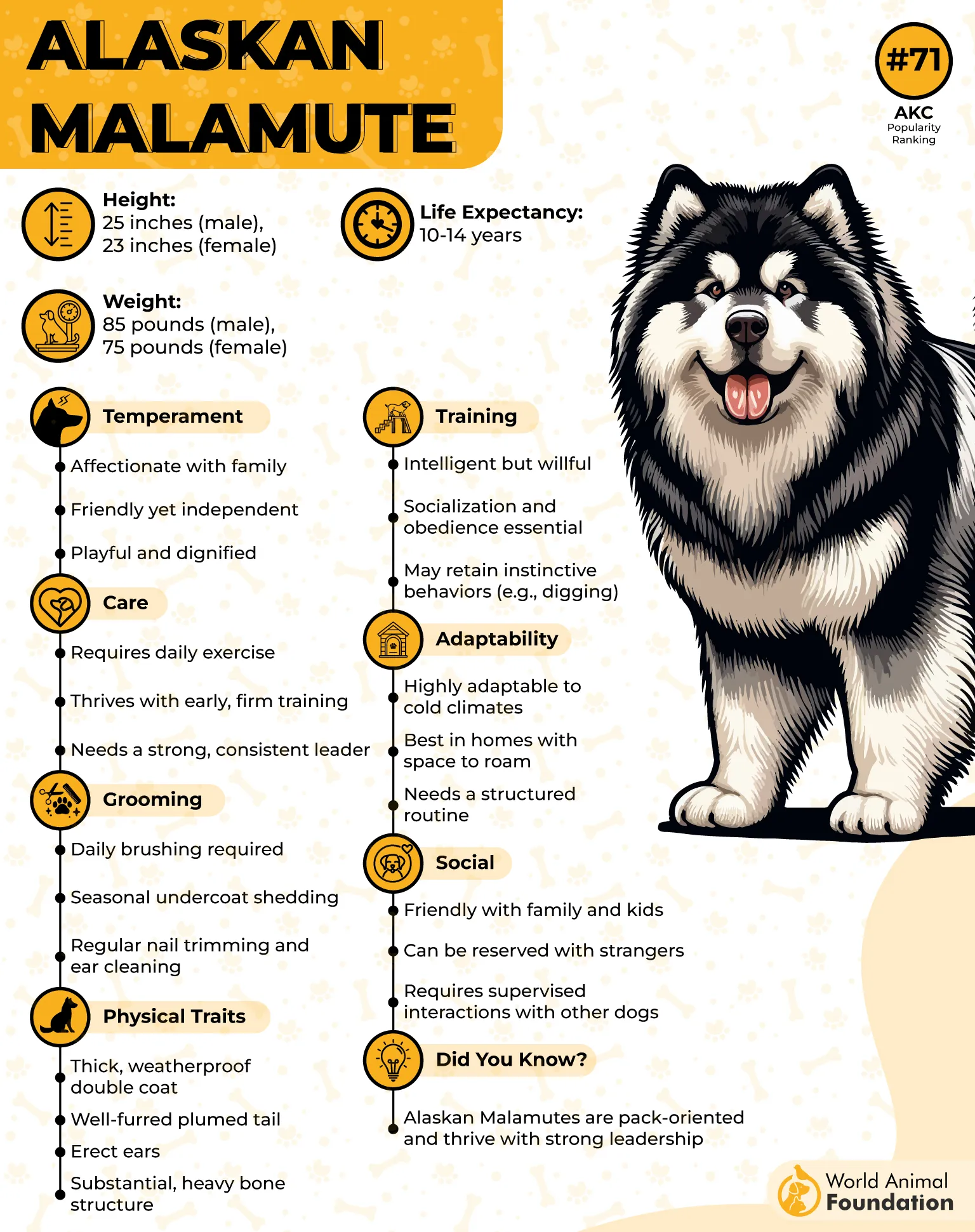
Their thick double coat makes them well-suited for cold weather, but it also means a lot of shedding. If you’re not a fan of fur-covered furniture, be prepared for constant brushing. They need extra care to stay cool in warmer climates, as their dense coat was built for snow, not summer heat.
Quick Fact: Alaskan Malamutes were part of the historic 1925 serum run to Nome, which inspired the Iditarod sled race. While Balto became famous, Malamutes played a crucial role in delivering life-saving medicine across the tundra!
Conclusion
Not all dogs crave constant attention or enjoy being lap dogs—some prefer their own space and exhibit an independent nature that sets them apart from affectionate dog breeds. Independent dog breeds like the Chow Chow, Shiba Inu, Afghan Hound, and Basset Hound were originally bred for tasks requiring hard work, intelligence, and self-sufficiency, contributing to their reserved nature and independent streak. While they may form strong bonds with their human family members, their independent nature means they often enjoy being left to their own devices rather than engaging in constant interaction.
Many of these breeds, such as the Great Pyrenees, Alaskan Malamute, and Shar Pei, have a protective nature, making them excellent guard dogs despite their reserved demeanor. Their strong-willed nature and independent spirit can challenge training, requiring early socialization and a firm, patient approach. These powerful dogs were bred to hunt, guard, or work, meaning they are not as naturally inclined toward constant interaction as other breeds.
Despite their independence, these dog breeds can still thrive in human families with the right environment. Understanding their independent streak means respecting their need for space and avoiding excessive coddling. Whether it’s the lion-like mane of the Chow Chow or the barkless dog traits of the Basenji, these breeds bring a unique charm to their owners. While they may not be overly demanding, they require mental stimulation, early training, and socialization to prevent potential behavior issues.


